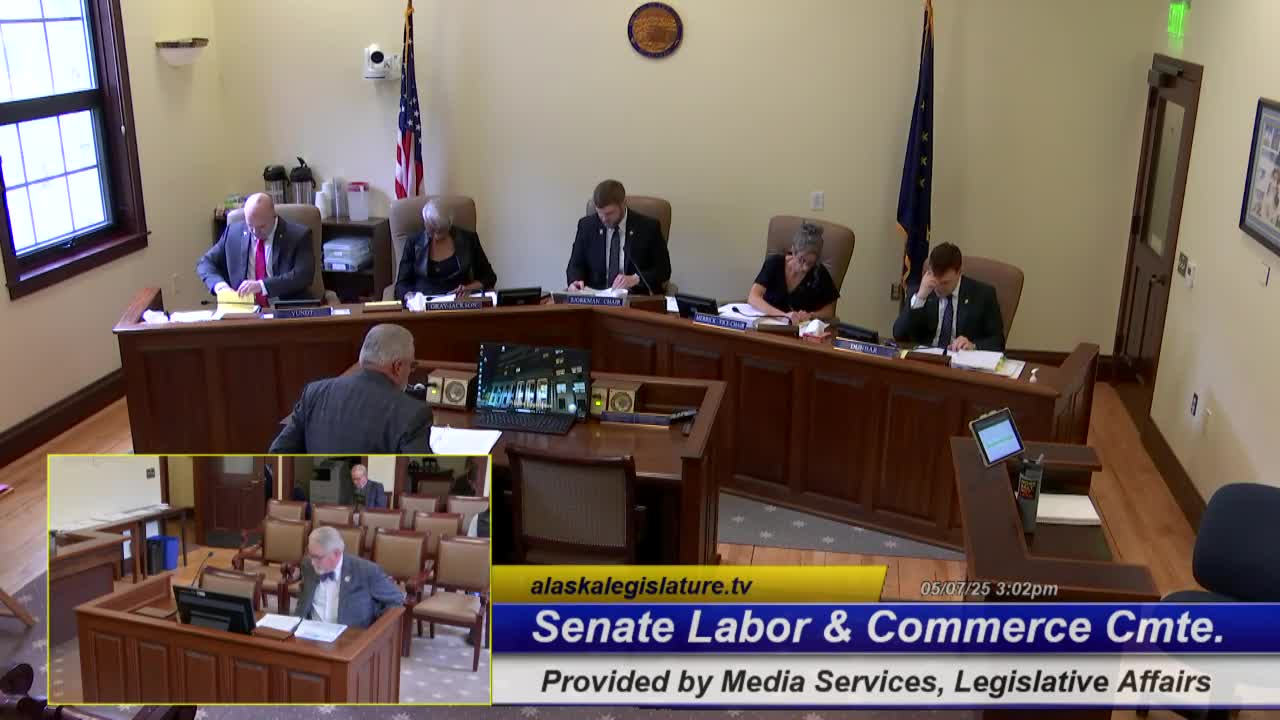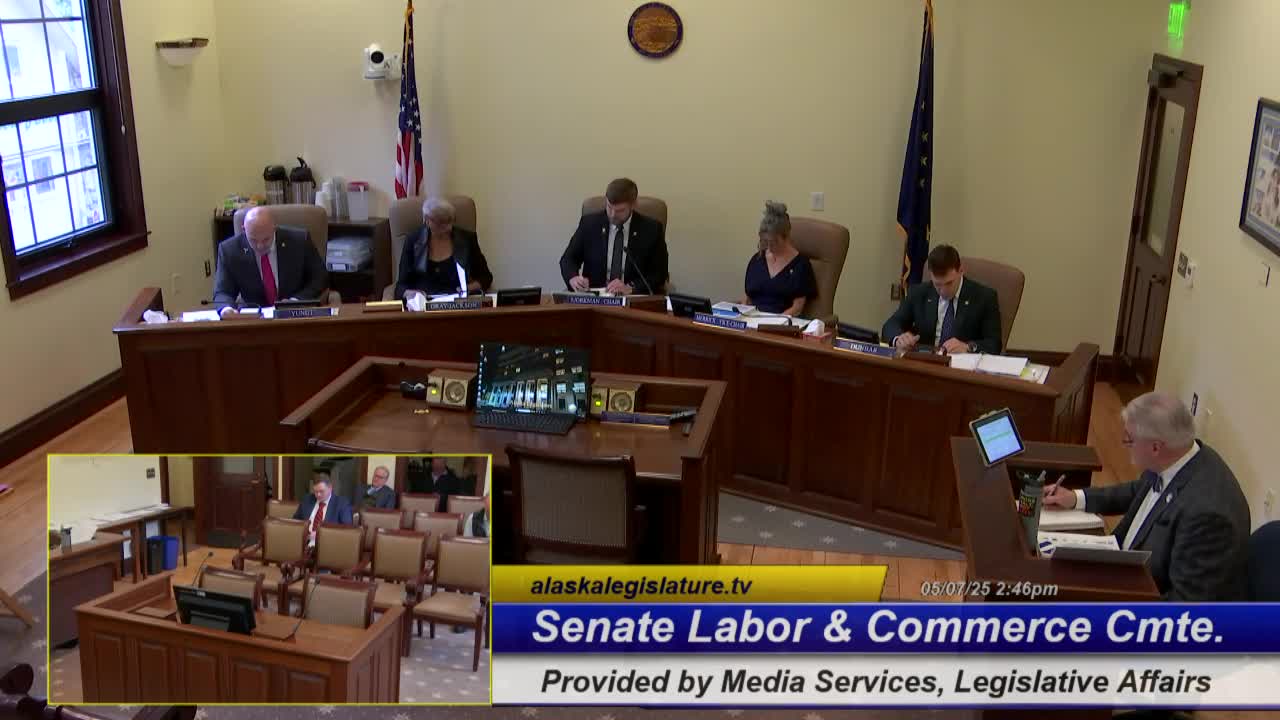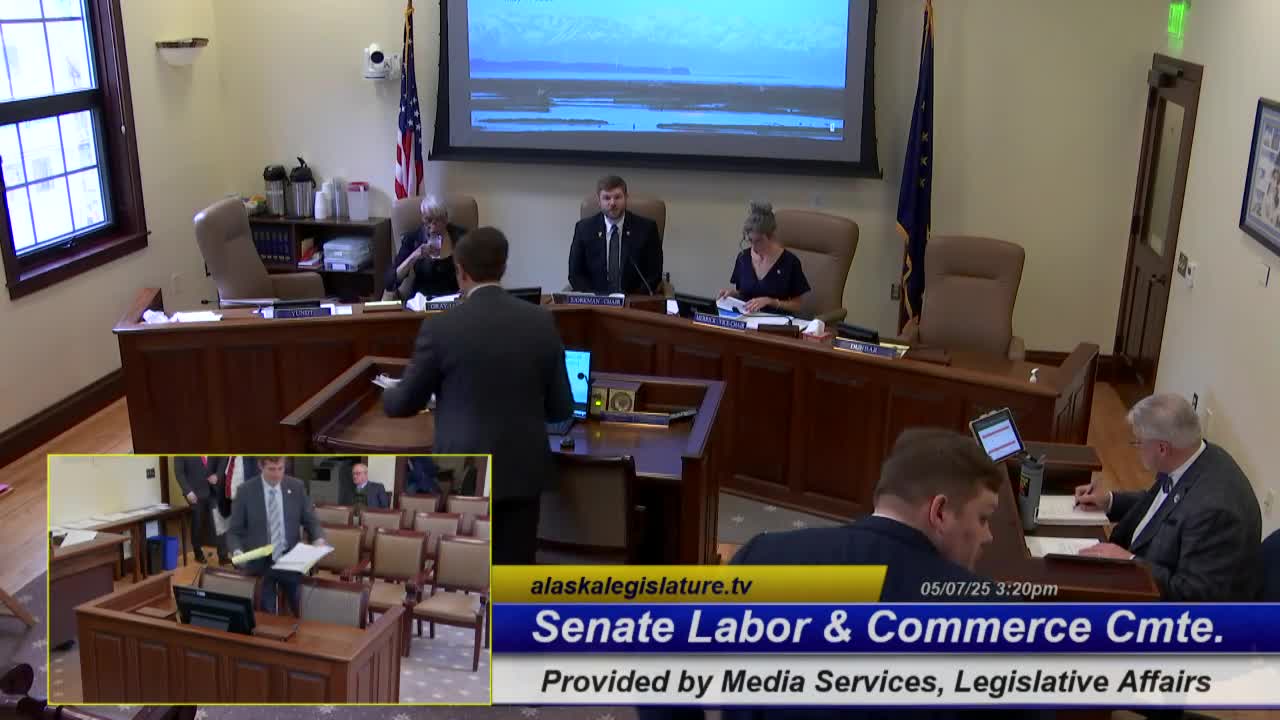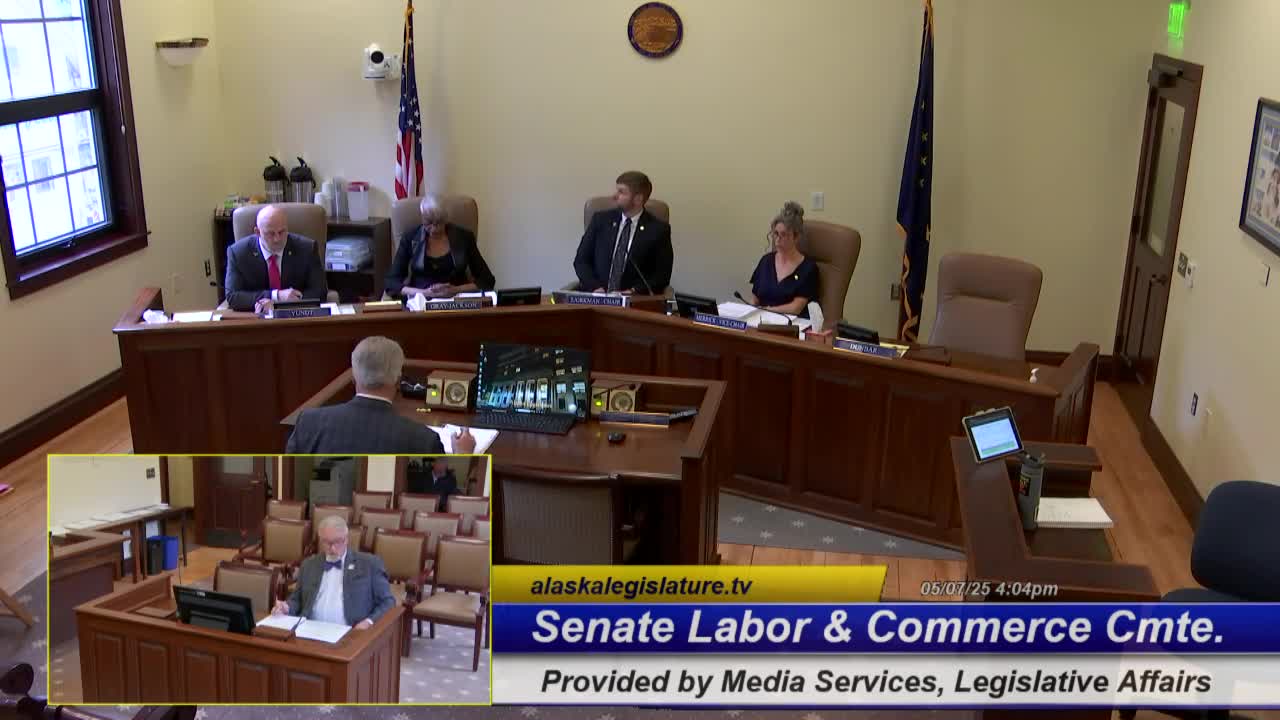Article not found
This article is no longer available. But don't worry—we've gathered other articles that discuss the same topic.

Committee hears support for new Cook Inlet administrative area to protect East Side set-netters

Senate committee hears mixed testimony on modernizing charitable pull tabs; work on committee substitute underway

Renewable portfolio standard draws technical testimony; sponsors, utilities and developers to refine draft

